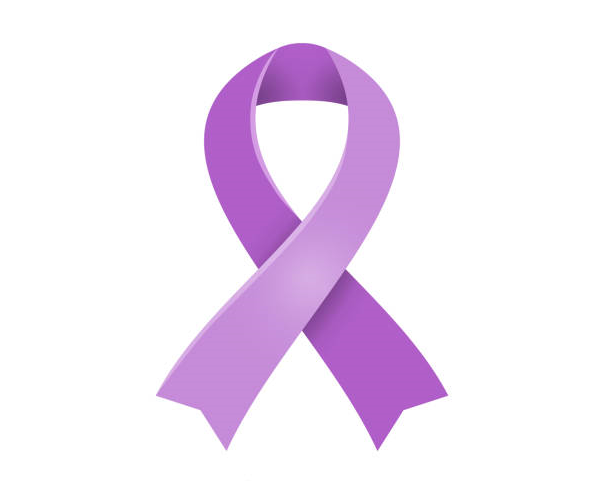By: Saima Sammar
As Pakistan observes National Cancer Awareness Day, a growing health crisis looms, with cancer impacting thousands of lives each year. The annual observance, held on November 7, brings much-needed attention to the importance of cancer awareness, early detection, and prevention efforts across the country. For Pakistan’s population of over 240 million, tackling the challenge of cancer involves not only raising public awareness but also overcoming healthcare limitations, social stigma, and financial hurdles.
Rising Cancer Incidence in Pakistan:
The prevalence of cancer in Pakistan has been steadily rising due to a combination of population growth, environmental factors, and lifestyle changes. According to the World Health Organization (WHO), cancer is the second leading cause of death worldwide, and Pakistan is no exception. Common cancers affecting the population include breast, oral, and lung cancers. National Cancer Awareness Day provides an opportunity to confront these challenges head-on, pushing for better healthcare access and encouraging early detection.
Addressing the Awareness Gap:
A significant portion of the Pakistani population lacks basic knowledge about cancer symptoms and risk factors. With limited information and resources, many individuals delay seeking medical help until their condition is advanced, lowering the chances of successful treatment. Awareness campaigns spearheaded on National Cancer Awareness Day are designed to address this knowledge gap, emphasizing the importance of recognizing early symptoms and seeking prompt medical advice.
Cultural Barriers and Social Stigma:
In Pakistan, cultural norms and social stigma contribute to a lack of open discussion around cancer, particularly regarding women’s health issues like breast cancer. In many communities, discussing such topics remains taboo, which can hinder early detection and treatment. The observance of National Cancer Awareness Day highlights the need to challenge these cultural barriers and encourages more open, supportive conversations about cancer.
Healthcare Inequality:
Healthcare access remains uneven across Pakistan, with specialized cancer treatment facilities concentrated in major urban areas. Rural populations face challenges in accessing these resources, which are often financially prohibitive for low-income families. National Cancer Awareness Day underscores the need for equitable healthcare services, calling on the government and organizations to extend medical services and financial support for cancer treatment across the country.
The Growing Burden of Cancer:
According to estimates by the International Agency for Research on Cancer (IARC), Pakistan recorded around 180,000 new cancer cases in 2020, and this number is expected to rise. The high incidence of breast cancer, especially among Pakistani women, underscores the urgency for widespread screening and preventive initiatives. Other prevalent cancers, such as oral cancer, often linked to tobacco and betel quid chewing, highlight the need for both public health interventions and lifestyle changes.
Key Initiatives on National Cancer Awareness Day:
National Cancer Awareness Day sees various stakeholders—including healthcare organizations, NGOs, and government agencies—mobilize efforts to raise awareness and promote prevention. Some of the key initiatives include:
Public Awareness Campaigns: Health organizations, including Pink Ribbon Pakistan, Cancer Foundation, and Indus Hospital, organize seminars, media broadcasts, and workshops to educate the public on cancer symptoms, prevention, and the benefits of regular check-ups.
Mobile Screening Units: These units extend screening services to rural and underserved areas, providing essential tests for breast and cervical cancer. This mobile approach offers a solution to communities where access to healthcare facilities is limited.
Promoting Self-Examinations: Various organizations conduct workshops to teach women breast self-examination techniques, which could lead to early detection of symptoms.
Encouraging Healthy Lifestyles: Campaigns on National Cancer Awareness Day stress the importance of lifestyle changes, such as quitting smoking, reducing alcohol intake, eating a balanced diet, and staying active—all of which can reduce cancer risk.
The Role of Government and Technology:
The government’s involvement is crucial for improving cancer care and prevention. On National Cancer Awareness Day, calls grow for increased investment in healthcare infrastructure, more affordable treatment options, and the implementation of comprehensive screening programs. Policy changes to regulate carcinogenic substances like tobacco are also needed to reduce preventable cancer cases.
Advances in technology offer promising avenues for cancer care in Pakistan. Telemedicine, for example, connects patients in remote areas to healthcare providers in cities, while social media has become an essential tool for spreading cancer awareness and educating the public. Emerging technologies, such as artificial intelligence (AI), could eventually play a role in early diagnosis by helping doctors analyze medical images for potential signs of cancer.
Recommendations for Comprehensive Cancer Prevention:
Addressing the growing cancer burden in Pakistan requires a multi-layered approach, including government action, healthcare improvements, and community engagement. Recommended actions include:
Nationwide Screening Programs: Making cancer screening accessible and affordable, particularly for high-risk cancers, could improve early detection rates.
Education in Schools and Communities: Introducing cancer awareness and prevention topics into school curricula and community programs can build early knowledge on healthy lifestyles and cancer risks.
Financial Support for Patients: Providing subsidies for cancer treatment and financial assistance programs for low-income families would reduce the financial strain and increase treatment adherence.
Data Collection and Research: Supporting research institutions in gathering data on cancer trends is essential for effective policy-making and intervention planning.
Moving Forward:
National Cancer Awareness Day serves as a vital reminder of the ongoing fight against cancer in Pakistan. Through awareness campaigns, early detection initiatives, lifestyle education, and governmental support, Pakistan can work toward reducing the burden of cancer on its people. Technology, self-examinations, and strengthened healthcare infrastructure represent essential tools in this fight.
By turning National Cancer Awareness Day into a catalyst for long-term action, Pakistan can enhance its efforts to improve cancer prevention, support timely treatment, and ultimately save lives.


